#AN EYE FOR AN EYE
Explore tagged Tumblr posts
Text

3K notes
·
View notes
Text

An eye for an eye
203 notes
·
View notes
Text
This Luke with this Aemond>>>

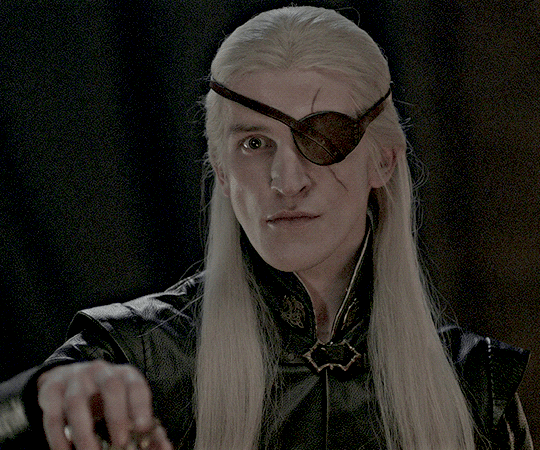
just imagine the chaotic dynamic we could've had if these two had been able to mature 👁🗡🩸
#aged-up lucemond>>>#“my lord strong how you've grown”- i can HEAR it#aemond targaryen#lucerys velaryon#lucemond#house of the dragon#hotd#enemies to lovers#fated feud#an eye for an eye
183 notes
·
View notes
Note
OH SORRY DIDNT KNOW THAT EXISTED GENIALLY
youre good youre good! TMAGP stole my The End avatar, so it's only fair I get one of theirs
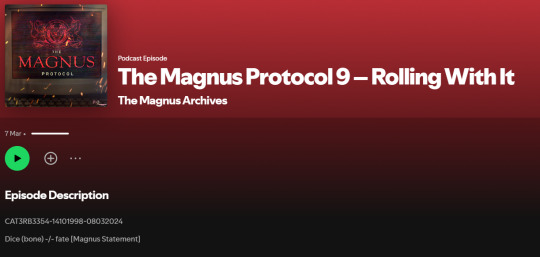
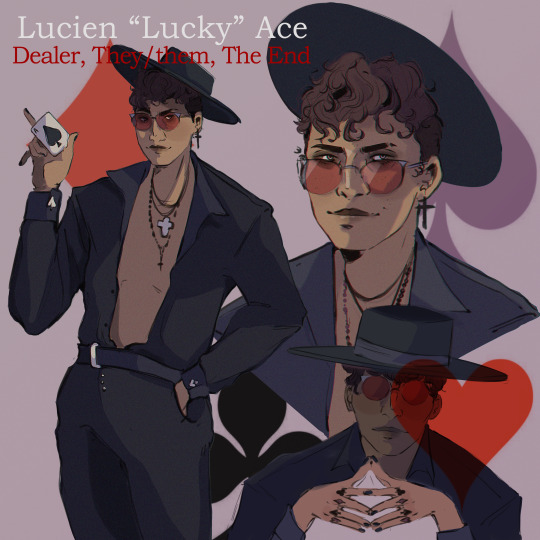
#an eye for an eye#this is a joke#but lucky was made before the episode came out#the magnus archives#tma#mag#the magnus protocol#tmagp#tmaoc
147 notes
·
View notes
Text

"An Eye for and Eye, a Tooth for a Tooth."
I have been dying to draw Billford in the Code of Hammurabi because of my history of graphic design class. Chat how do we feel about this?
#gravity falls#fanart#book of bill#gravity falls fanart#the book of bill#alex hirsch#billford#artists on tumblr#bill cipher#stanford pines#gruncle ford#ford pines#i love you ford pines#billford doomed yapi#yaoi#doomed yaoi#old man yaoi#the code of hammurabi#an eye for an eye#aesocs
211 notes
·
View notes
Note
I come to you, on my back up account because my goofy ass made the wrong account the primary one and doomed to be haunted by it, to ask thy. I’m on my hands and knees, the asked becoming the asker.
May I pretty please, with zooble pancakes on top, draw silly self-indulgent carnival gangle x ragatha (they’re on my mind and I can’t get rid of them)
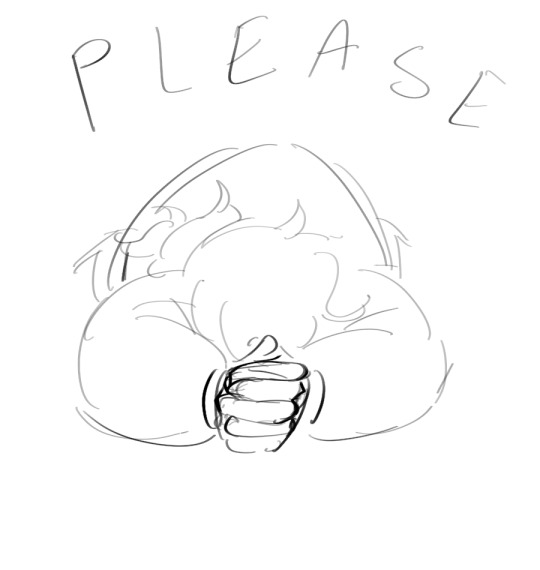
HAHAHA AWWEE,,, doitdoitdoit😈
890 notes
·
View notes
Text








lucerys and aemond: on creator and creation.
[ "another like him" - frankenstein: a new musical | speeches for doctor frankenstein - margaret atwood | great expectations - charles dickens | frankenstein - mary shelley | frankenstein - mary shelley | i put the coffin out to the sea - lisa marie basile ]
#hotd#house of the dragon#house of the dragon hbo#aemond targaryen#lucerys velaryon#lucemond#frankenstein#mary shelley#poems and quotes#web weaving#aemond#aemond x lucerys#unbreakable bond#between creation and creator#as a wretched mirror image of frankenstein#when despised the creation is justified in its anger towards the creator#an eye for an eye#aemond one eye#the hyperfixation is coming back
270 notes
·
View notes
Text
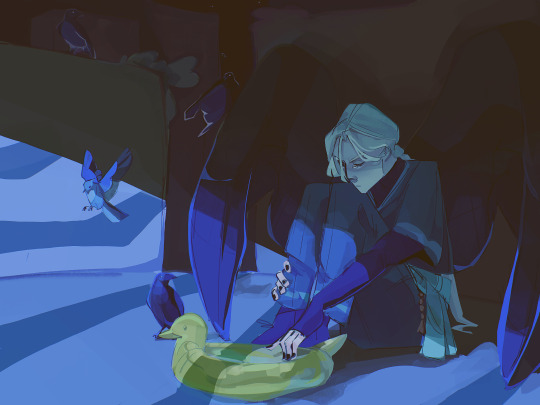
The caged bird sings
with a fearful trill
of things unknown
but longed for still
1K notes
·
View notes
Text

34 notes
·
View notes
Text
I'm sorry but nothing in the history of comedy will ever be as funny as Luke and Jess going out to beat up a swan.
#an eye for an eye#gilmore girls#jess mariano#luke danes#lorelei gilmore#Rory Gilmore#Literati#Paris Geller#Lane kim#milo ventimiglia#scott patterson
662 notes
·
View notes
Text
“An eye for an eye,” “A son for a son.”
Aemond lost an eye… Lucerys didn’t. Rhaenyra lost a son… Helaena lost a son. Alicent lost a grandson.
Violence increases. Crime multiplies. Injustice spreads recklessly and slaughters innocent ones.
Viserys' favoritism, carelessness, and imperception were always the propellers of disorder, infighting, and brutality. His failure to safeguard all his children and grandchildren haunts House Targaryen. His disinterest in Aegon's, Aemond's, and Helaena's futures, his dismissal of dangers regarding the succession, and his oblivion towards the possibility of any of his children being used as pawns to-be-installed-on-the-throne by Rhaenyra's potential future enemies wishing to overthrow her, thus necessitating her to kill/imprison/banish them, lit the first spark of the all-consuming fire that ensued.
It is, therefore, the show's darkest, and most tragic of ironies that Viserys' eye paid for the one Aemond lost, and Viserys' sons and grandsons, dying one after another in interchangeable succession, bear the curse that looms over House Targaryen until all fire is extinguished, and its utter destruction comes.
#“the only thing that could tear down the house of the dragon was itself”#dance of the dragons#house targaryen#hotd#hotd season 2#house of the dragon#house of the dragon season 2#hotd s2#hotd meta#anti viserys i targaryen#the greens#the blacks#an eye for an eye#a son for a son#hotd s2 e1#hotd season 2 episode 1#greenqueenhightower#welighttheway#b&c#blood and cheese#blood & cheese#lucerys velaryon#jaehaerys targaryen#hotd thoughts#hotd themes#team green
137 notes
·
View notes
Text
“Freedom means even the wicked get to make their own choices.”
This is a quote said by a character called Surtalogi from the game, Genshin Impact, but we aren’t talking about him or that game. We’re talking about Sonic the Hedgehog because that’s who this quote reminded me of
It doesn’t just remind me of him. No, no, no. When I saw this quote for the first time, I had this huge epiphany. This quote is basically the distilled version of why I love Sonic so much, why he’s my favorite character in his own franchise and one of my favorites in general
Sonic believes in freedom. He ‘preaches’ and practices it in everything he does. He’s a huge proponent of self-determination. He believes in people and choices
Which means that he does not work on the same moral system as everyone else in his world. He’s not a hero in the typical means because he does, technically, allow evil. We saw this in the Metal Virus arc, but it’s so much more than that
Sonic stops his antagonists from restricting the freedom of others, but he doesn’t punish them, not really. And he definitely doesn’t take preventive action against them. He waits until they’ve committed to their choice to start fighting back because true freedom means giving everyone a chance to change their mind. He doesn’t force them to be a “good” person, just someone who stops hurting others for their goals
And that’s why I love him. I can’t say I necessarily agree with him—not in every situation—but I find his morality so fascinating in a sea of perfect paragons and gritty antiheroes. He helps and believes in everyone, even those who have wronged him/the world in the past (ex. a solid chunk of his friends are people who tried killing him), as long as you aren’t encroaching on another’s freedom
There’s something so beautiful about that. This dedication to such an unique viewpoint. Sonic is not some saviour who wants to prevent all suffering. Arguably, he lets it happen in more than a few cases because freedom is about letting people experience everything the world has to offer—good and bad. It’s about letting people decide every single moment who they want to be, letting them change from one extreme to the next within seconds. It’s not about inspiring others to be better but rather, to be themselves—whoever that may be
#sonic fandom#sonic the hedgehog#sth#character study#freedom#why i love sonic part 10872538#he’s a great protagonist#i love when he ‘argues’ morality with his allies#and here’s some more contrast for you#shadow is all about punishment#an eye for an eye#silver goes for preventing#he tried killing the iblis trigger before iblis was triggered#that’s punishment before the crime#it might be a coincidence#but it’s just so cool to me#i love the little blue rat#i love the detail#tell me if i’m crazy#i’ll be cool about it
15 notes
·
View notes
Text
violence isn’t the answer but if can be if your bitch of a mother threatens you so many times it can be!
23 notes
·
View notes
Text
Guys we are WINNING I managed to put three (3) Sonic facts/quotes in a conversation with my mother about language and figures of speech
#sonic movie 1#sonic movie 2#sonic movie 3#sonic movie universe#sonic movie spoilers#they were the light shines quote#how sonic calls tom dad#even though theyre not related#and the there are no winners with revenge thing#in order these were related to:#quotes we like#the supposed original meaning of#blood runs thicker than water#and the original#an eye for an eye#thing#meaning#sonic#shadow sonic#sonic 2#sonic 3#shadow#shadow the hedgehog#shadow the ultimate lifeform#shadow robotnik#sonic wachowski#quotes#sonic the hedgehog#sonic quotes
23 notes
·
View notes
Text
If one could speak of Biblical verses as being vilified, then "an eye for an eye" would be the most vilified verse in the Bible. It is commonly cited to "prove" the existence of an "Old Testament" ethic of vengeance, and then contrasted with the New Testament's supposedly higher ethic of forgiveness. "An eye for an eye" is often associated with modern Jews as well, and invariably in a pejorative manner. Israel's critics, for example, commonly accuse her of practicing "eye for an eye" morality when she retaliates against Arab terrorist acts.
In actuality, the biblical standard of "an eye for an eye" stood in stark contrast to the legal standards prevailing in the societies that surrounded the ancient Hebrews. The Code of Hammurabi, a legal code hundreds of years older than the Torah, legislated retaliation even against innocent parties. Thus, if A constructed a building for B, and the building collapsed and killed B's daughter, then A's daughter was put to death (Law number 229). The biblical law of "an eye for an eye" restricted punishment solely to the perpetrator. Furthermore, unlike Hammurabi's code, one who caused another's death accidentally was never executed.
"An eye for an eye" also served to limit vengeance; it did not permit "a life for an eye" or even "two eyes for an eye." The operative biblical principle was that punishment must be commensurate with the deed, not exceed it. Blood feuds and vendettas were long practiced among the Israelites' neighbors - indeed, they have persisted in the Middle East until this century - and revenge was often carried out without restraint.
Christian often contend that Jesus went beyond the standard of "an eye for an eye," that he advocated forgiveness and saw retaliation as unworthy of man. Yet the New Testament records Jesus saying, "But the one who disowns me in the presence of men, I will disown in the presence of my Father in heaven" (Matthew 10:33). In other words, Jesus seems to advocate treating others as they have treated him; a standard of justice that is perfectly commensurate with the demand of "an eye for an eye."
In the time of the Talmud, "an eye for an eye" was not carried out literally, and Orthodox Jewish scholars teach that it was never practiced. The Talmud's rabbis feared that the very process of removing the perpetrator's eye might kill him as well, and that, of course, would be forbidden (Bava Kamma 84a). "An eye for an eye" was therefore understood as requiring monetary compensation equivalent to the value of an eye. The same understanding was applied to almost all the other punishments enumerated in the same biblical verse, "a tooth for a tooth, a wound for a wound."
The only punishment in this set that was not converted to a monetary fine was capital punishment for murderers, "a life for a life." Because the Torah believed that premeditated murder deserved the death penalty, there was obviously no fear of punishing the killer excessively. Jewish law did dictate, however, that murderers be executed in the quickest manner possible. Hence, later Jewish law forbade the Roman punishment of crucifixion.
Torah law also forbade remitting a murderer's sentence with a monetary fine. Life and money, according to the biblical ethic, are incommensurate; one can never atone for murder by paying money. In this regard, too, Torah law differed from the laws of the ancient Jews' neighbors, which would sometimes fine those who had murdered people belonging to a lower social class and which made certain property crimes (for example, looting at a fire) capital offenses. In Jewish law, property crimes could never be punished with death, and murderers could never be let off with payment of money, even if the family of the victim were willing to accept it (see Numbers 35:31, and Maimonides, Mishneh Torah, "Laws Concerning Murder," 1:4).
Both in its insistence that evil must be punished and in its equal insistence on setting limits to that punishment, "an eye for an eye" is a basic principle of biblical justice.
- Jewish Literacy, Rabbi Joseph Telushkin, pages 558-560
#jewish literacy#rabbi joseph telushkin#an eye for an eye#the bible#the talmud#judaism#jews and judaism#jumblr
36 notes
·
View notes